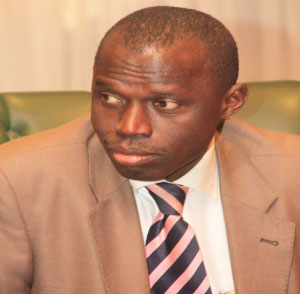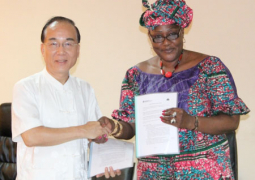
Presenting the report before deputies, the Finance Minister said that in 2012, African heads of state in their declaration on the Programme for Infrastructure Development in Africa (PIDA) called for innovativeness to facilitate and accelerate infrastructure delivery in Africa.
He said that after broad consultations with African stakeholders, the African Development Bank proposed the establishment of a new delivery vehicle called “Africa 50”, an Investment Bank for Infrastructure in Africa that focuses on high-impact national and regional projects in the energy, transport, ICT and water sectors.
According to the Finance Minister, the historic constitutive General Assembly of the founding shareholders of Africa 50 held on 28-29 July 2015 in Casablanca, Morocco, led to the creation of the Africa 50 Project Finance and Africa 50 Project Development.
These are two independent and distinct companies operating entirely on commercial basis, with the ultimate objective of supporting the infrastructure needs of Africa.
He added that Africa 50 is an African-led initiative with early capital commitments from African governments and the African Development Bank.
Minister Kolley further told deputies that Africa infrastructure financing needs are estimated at US$95 billion per annum.
At present, he continued, less than half of this amount is being mobilised, leaving a gap of US$50 billion per annum.
“Africa 50 is an infrastructure investment platform designed to significantly narrow the infrastructure finance gap in Africa.”
The vehicle aims at shortening the time between project idea and financial close - from a corner average of 7 years to less than 3 years, thereby delivering a critical mass of infrastructure in Africa in the short-to-medium term, he noted.
Finance Minister Kolley added that the primary objective of this segment is to increase the number of bankable infrastructure projects in Africa.
“This will be accomplished through substantially increased funding of early stage project development activities, made possible by innovative partnerships and incentive schemes,” Kolley said.


